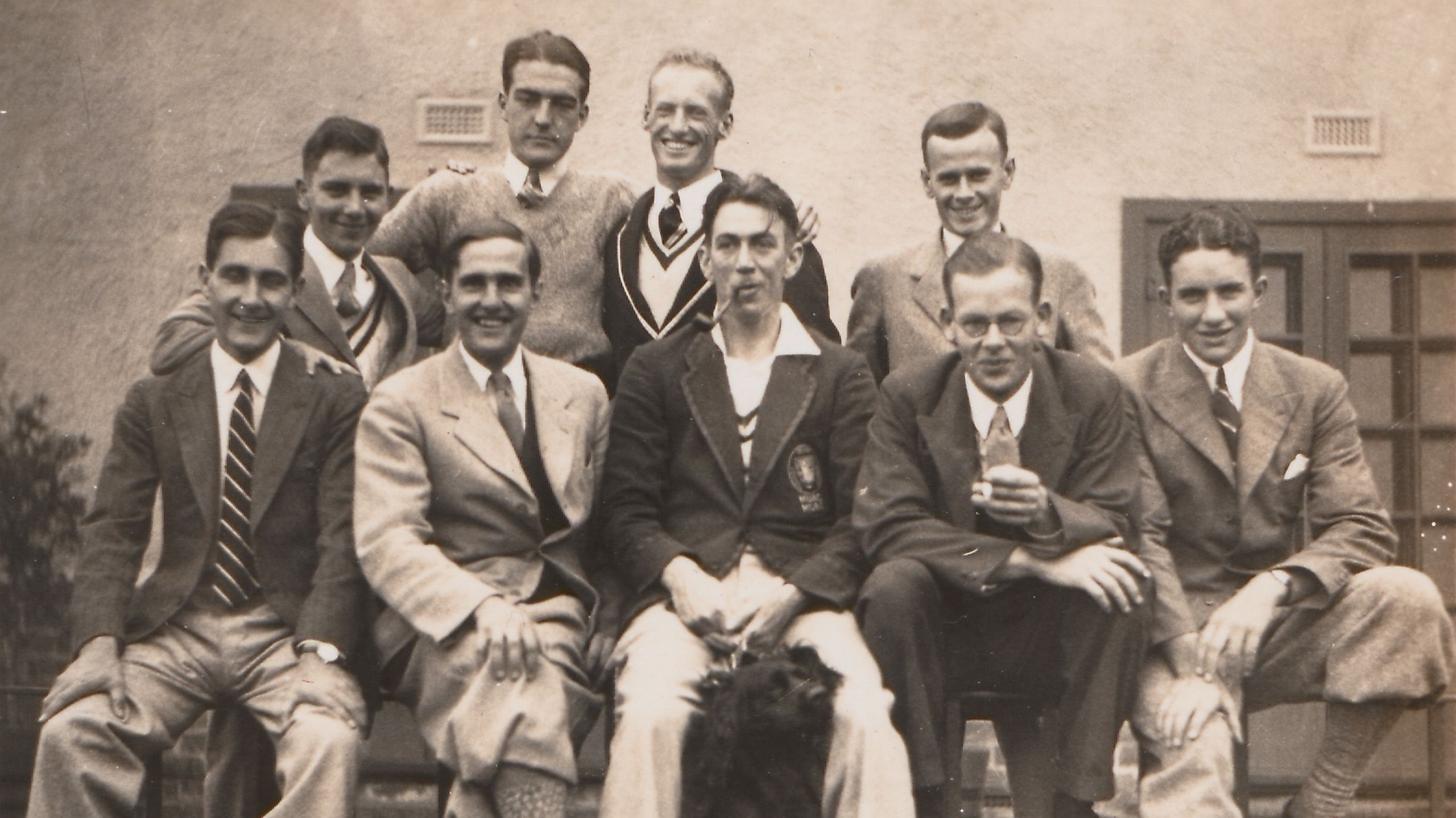Trinity up in lights
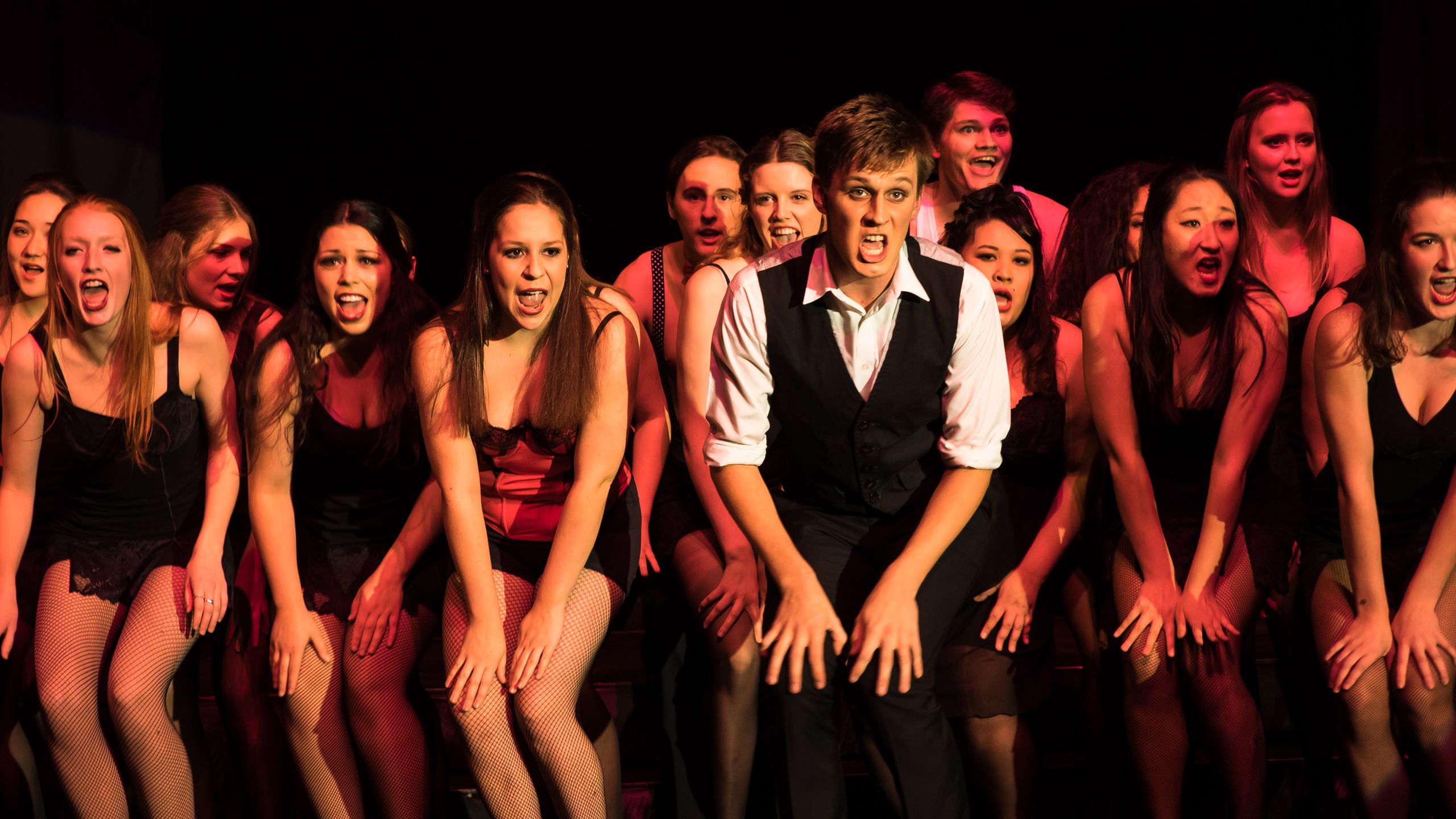
Trinitarians have been taking to the stage since the late 19th century. From classics to comedies, these student productions have reliably showcased exceptional talent and have, for better or worse, often attracted media attention.
We look at the trajectory of Trinity’s performing arts scene.
‘Seneca cannot be too heavy nor Plautus too light for the keen apprehension of dramatic necessities possessed by the students of Trinity College, Melbourne,’ praised the Herald in 1881, citing Polonius’ utterances to Hamlet.
What made Mostellaria (The Haunted House), a comedy by the Roman playwright Ticus Maccius Plautus (254–187 BC), even more notable to its Melbourne audience was that it was the inaugural play presented by students of Trinity, and the first performance of its kind in Australia – a classical play performed in its original language, Latin.
Mostellaria was performed in Trinity College’s original timber Dining Hall and was decorated for the event by John Hennings, a scenic artist at Bourke Street’s Theatre Royal, with flags, wreaths and sprigs of evergreens – the whole serving as a backdrop to the set of an Athenian street. The main driveway was lined with Chinese lanterns, which formed a graceful arc around the eastern edge of the Bulpadock.
The classics
Trinity favoured classical plays for much of the 1880s, as young College thespians presented more works by Plautus: Rudens in 1884, followed by Aulularia in 1887.
Performed in April at the Masonic Hall on Collins Street, Aulularia was produced as a fundraising event in support of the Trinity College Hostel, the women’s residential hall that had opened the previous year in a two-storey terrace house on Sydney Road.
‘The lady students apparently are not yet strong enough in classics to assist their brethren of Trinity in the production of a Latin or Greek play,’ Melbourne’s weekly rag Table Talk suggested, ‘though we hope at some not very distant date to see the “Aulularia” revived or some other comedy of Plautus given.’
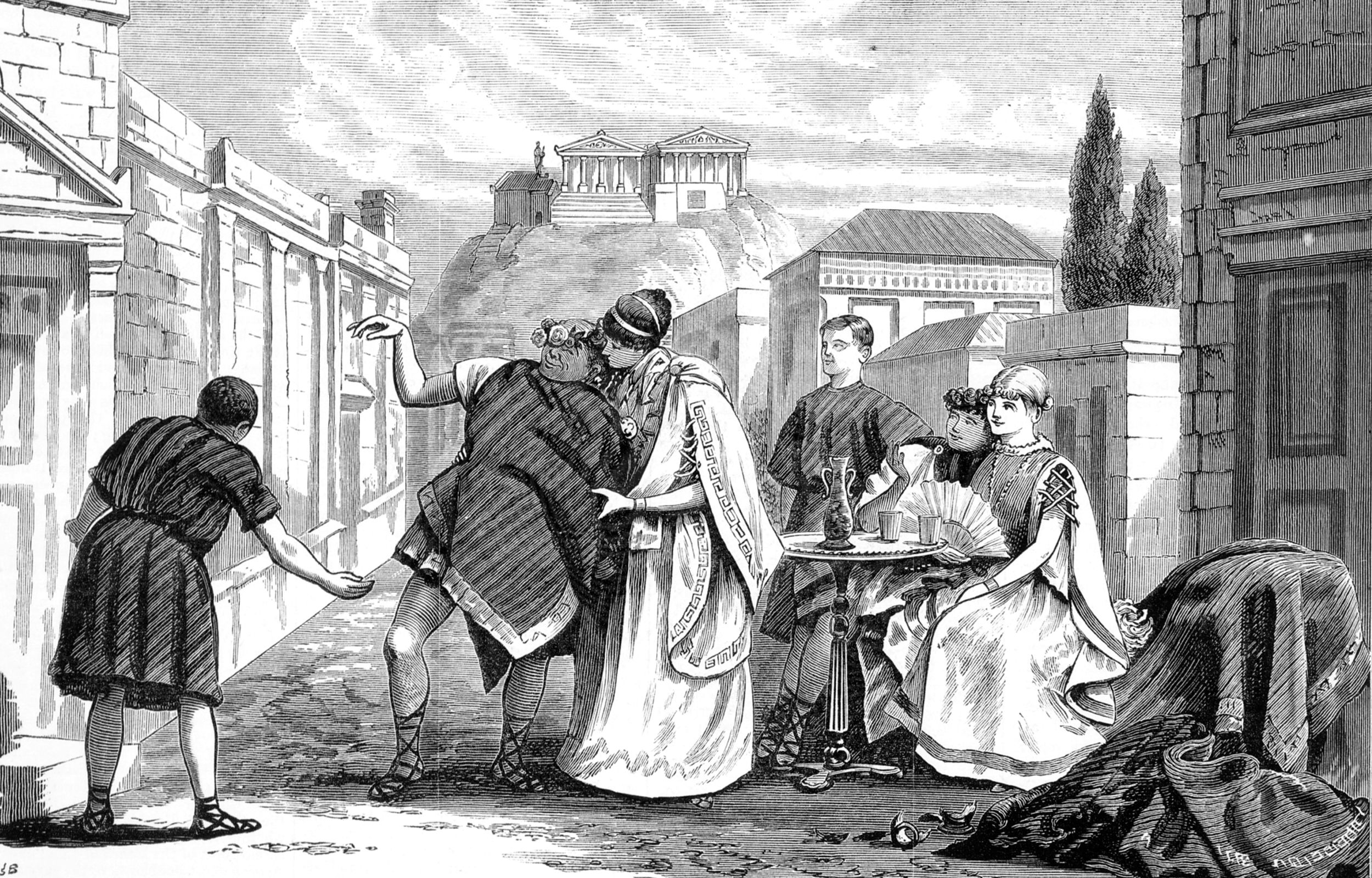
'The Latin play at Trinity College'. Illustrated Australian News, 29 June 1881.
'The Latin play at Trinity College'. Illustrated Australian News, 29 June 1881.
As it turned out, the women would not make their on-stage debut with a Plautus comedy, but rather, the tragedian Euripides. In 1898, Trinity moved from the Romantic to the Hellenic, putting on a grand performance of Alcestis (which was performed again in 1998 to mark its centenary) at the Melbourne Town Hall in the original Greek.
A decade earlier that would itself have been newsworthy, but, according to The Weekly Times, ‘undoubtedly the most interesting feature of the coming play is that for the first time the students of Trinity will have the assistance of the “sweet girl graduates” of Trinity Hostel.’
In the lead role of Alcestis herself was Florence Towl from Ballarat who had come into the hostel two years earlier (she was the first woman to be awarded the College’s residential music scholarship while studying voice at the University’s conservatorium under the tutelage of feted Viennese soprano Elsie Wiedermann-Pinschof).
Following her impressive university performances, Towl forged a musical career and gained international recognition as ‘Madame Ballara’, a homage to her home town of Ballarat.
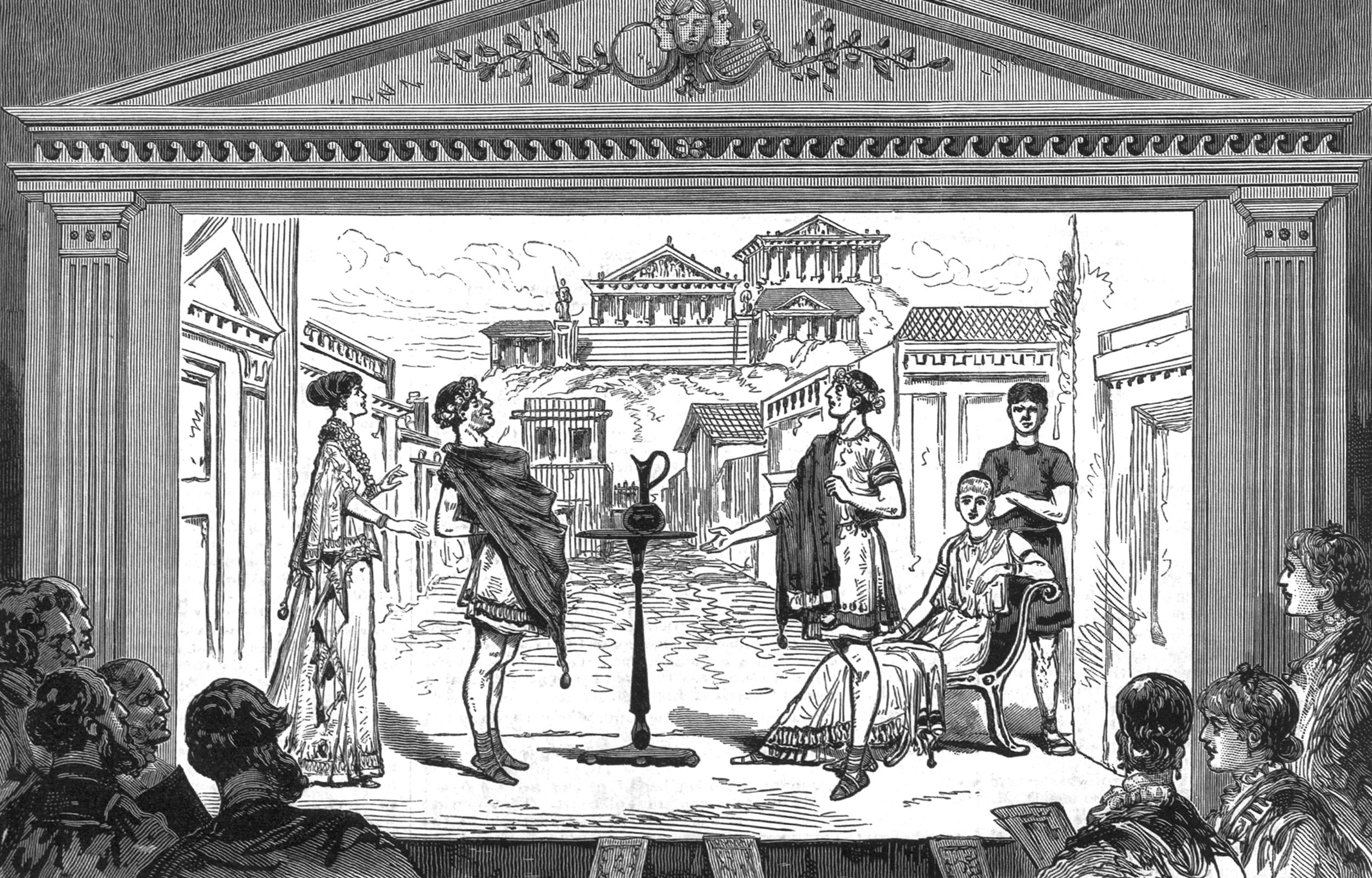
Audience attendees watching Trinity's performance of Mostellaria, in June 1881. Australasian Sketcher, 18 June 1881.
Audience attendees watching Trinity's performance of Mostellaria, in June 1881. Australasian Sketcher, 18 June 1881.

'The Latin Play in Melbourne - The Aulularia'. Australasian Sketcher, 17 May 1887.
'The Latin Play in Melbourne - The Aulularia'. Australasian Sketcher, 17 May 1887.
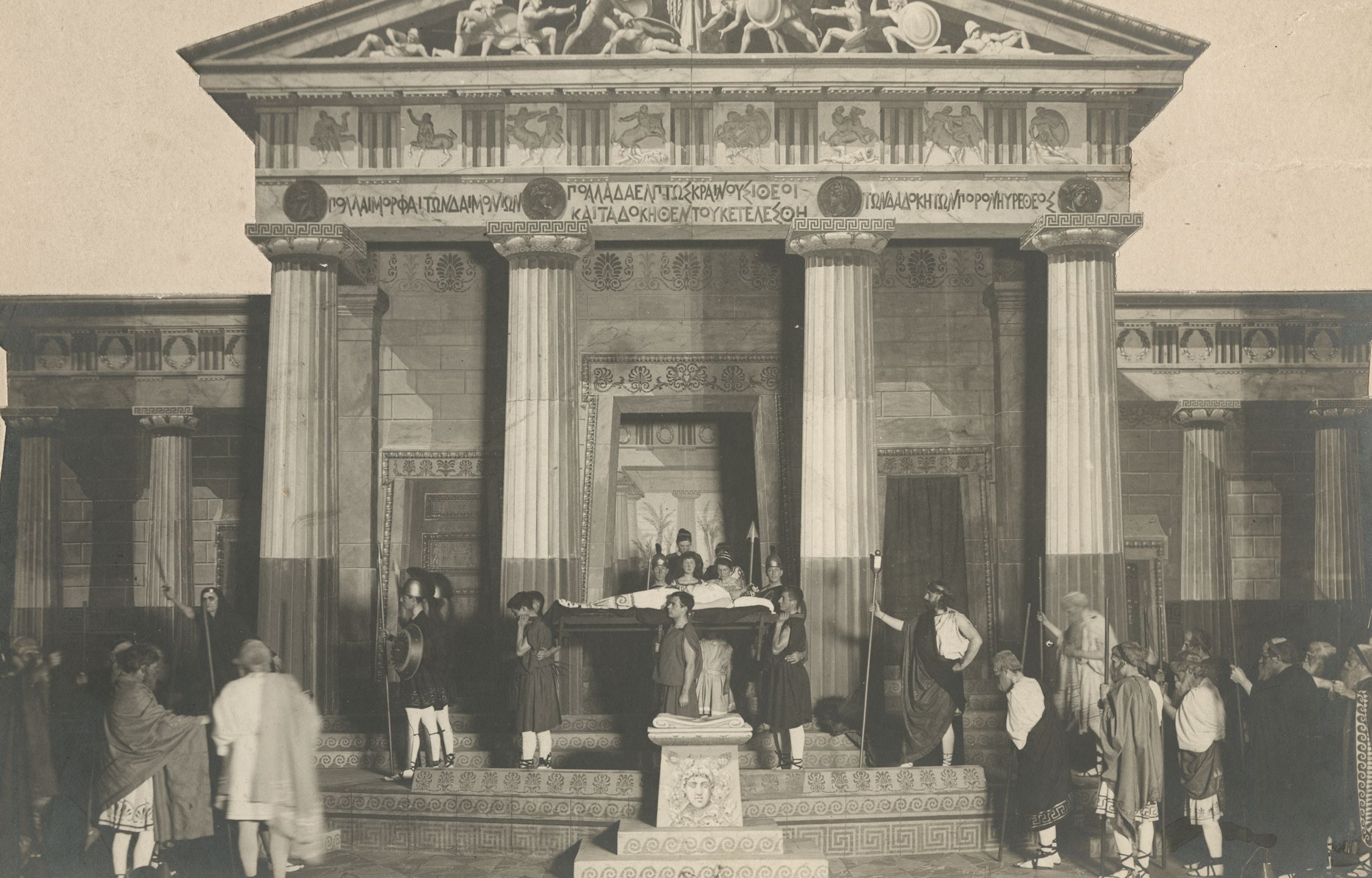
Alcestis of Euripides performed by students of Trinity College in 1898 at the Melbourne Town Hall. Trinity College Archives, MM 002790.
Alcestis of Euripides performed by students of Trinity College in 1898 at the Melbourne Town Hall. Trinity College Archives, MM 002790.
Finding a new direction
When war erupted, collegiate life – in all forms – was reduced to a shadow of itself. Returning servicemen recommencing earlier studies and new, fresh students had to re-establish pre-war student culture and the College traditions that had been left languishing for almost a decade.
In the early 1890s, a Dramatic Society was formed at Trinity and, together with the College’s Glee Club, they produced HV Esmond’s three-act comedy, One Summer’s Day, in the Jubilee year of 1922.
The following year, another new element was introduced, with the Dramatic Society’s production of Robert Marshall’s comedy, His Excellency the Governor, with proceeds going towards the ‘aid of the wives and children of the unemployed’.
War would then pause activities once again and production resumed in 1949 with American playwright William Saroyan’s The Time of Your Life, first performed on Broadway a decade earlier. Held at the Union Theatre in May, attendance was good for all three nights of the production, with The Age newspaper most impressed with the cast of almost 30 players.

A sumptuous costume performance in 1896 of Robert Browning's Strafford. Trinity College Archives, MM 001755
A sumptuous costume performance in 1896 of Robert Browning's Strafford. Trinity College Archives, MM 001755
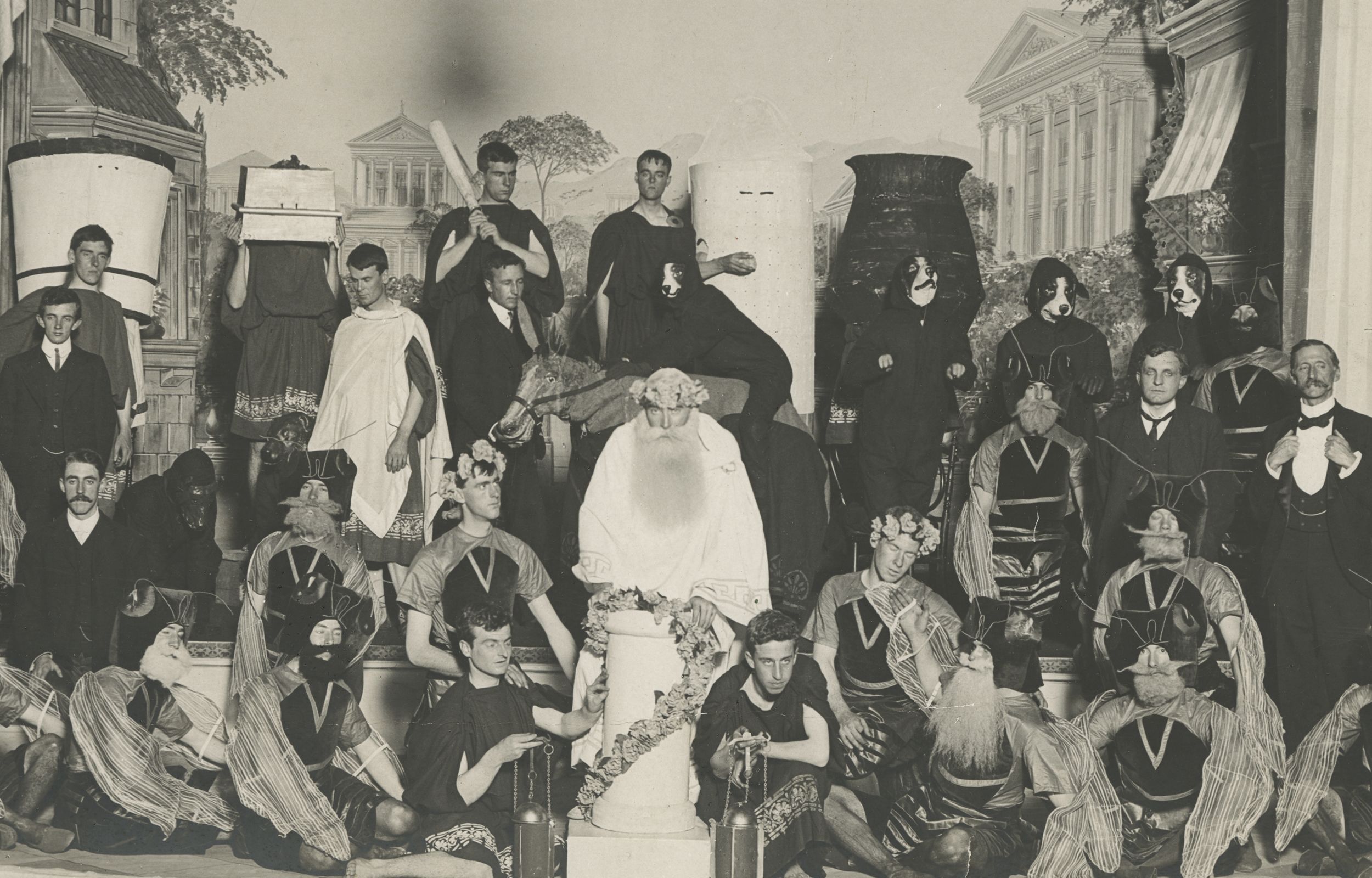
On stage at Government House for the charity performance of The Wasps in 1906, Warden Dr Alexander Leeper at far right. Trinity College Archives, MM 002973.
On stage at Government House for the charity performance of The Wasps in 1906, Warden Dr Alexander Leeper at far right. Trinity College Archives, MM 002973.

Cast of the College performance of HV Esmond's One Summer's Day, in 1922. Trinity College Archives, MM 003094
Cast of the College performance of HV Esmond's One Summer's Day, in 1922. Trinity College Archives, MM 003094

Cast on stage during the production of the College play, The Time of Your Life, 1949. Trinity College Archives, MM 003860.
Cast on stage during the production of the College play, The Time of Your Life, 1949. Trinity College Archives, MM 003860.
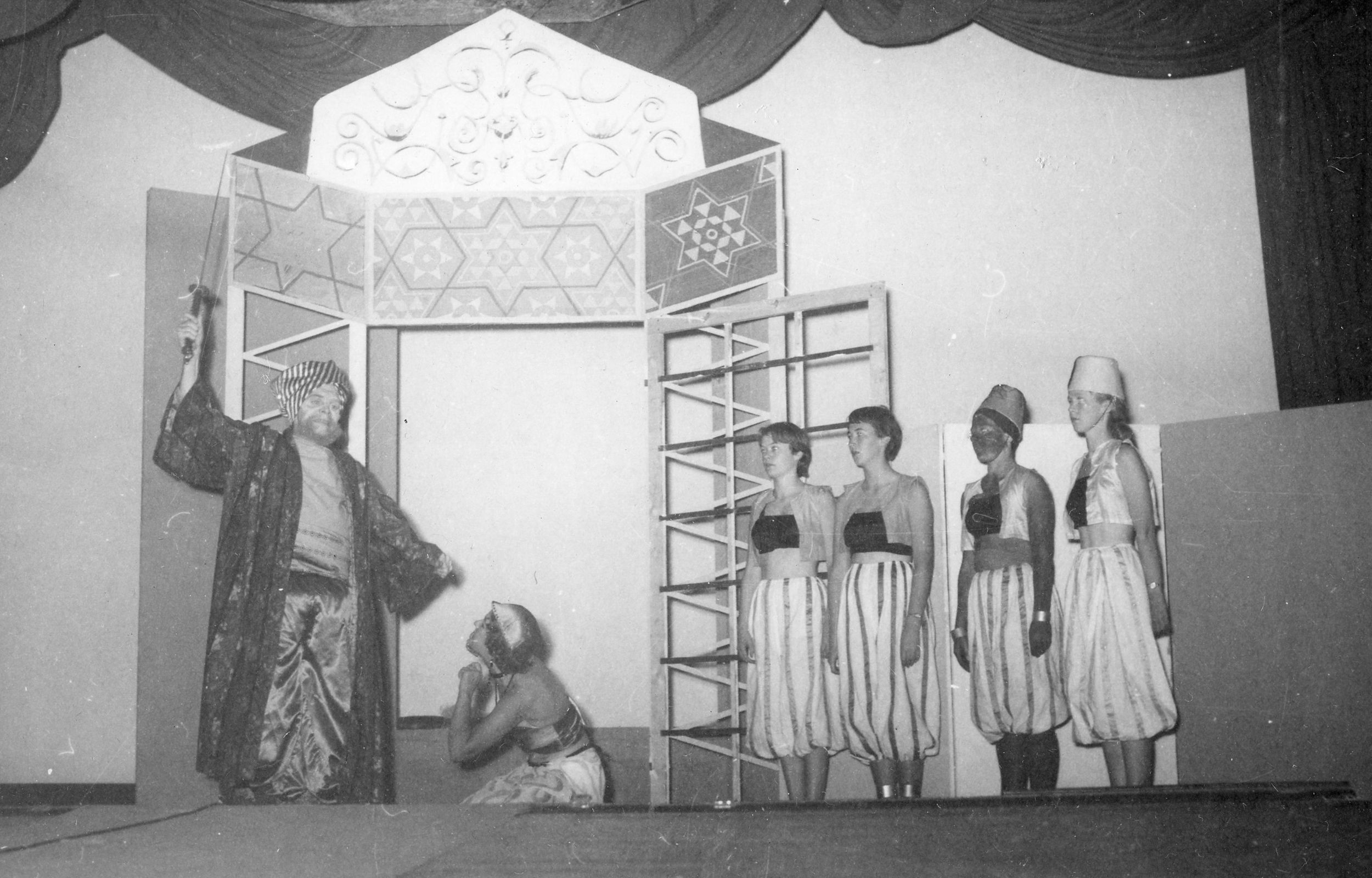
The cast of the 1955 production of Hassan during a final dress rehearsal before opening night.
The cast of the 1955 production of Hassan during a final dress rehearsal before opening night.
Highs and lows
The following years saw a revival of established English and Irish playwrights on the stage: George Bernard Shaw’s story of protagonist Blanco Posnet, Shakespeare’s The Tempest in 1954 and The Winter’s Tale in 1956, and 17th-century John Vanbrugh’s comedy The Provok’d Wife in 1957. But it was the ambitious production of James Flecker’s Middle Eastern-themed Hassan, staged in 1955, that loomed large as one of the most memorable productions of the decade.
Not all productions met their mark, however. This seemed to be particularly so throughout the social revolutionary years of the 1960s and early 1970s. In a critical review of the 1969 production of The Cherry Orchard, by Russian playwright Anton Chekhov, a withering George Myers (TC 1965) deemed the joint Trinity-Janet Clarke Hall production ‘a failure’ and declared that comments heard from audience members at the play’s conclusion ‘revealed that far from catching up with the kitchen sink the general Trinity College milieu doesn’t even copy with the 19th century values which it claims to be familiar with.’
And the criticism came not only from within the Trinity student community, but beyond.
Journalist and collegian Michael Cathcart, who was in the cast of Ormond’s So Many of Them Aren’t in 1975, was condemnatory of the College environment of the 1970s because:
'The colleges are such sites of privilege, often what would happen is that someone who would enjoy being in their school play at Melbourne Grammar or at Scotch or at PLC would come in and want to do more theatre. So they would become the efficient, private, privileged, secretary of the drama committee in their college and they’d want to go on doing The Boyfriend or some sort of activity for ruling-class boys and girls to put on funny clothes and to sing and dance. That was always a problem and Trinity was always doing that. They did it shamelessly, tirelessly and enthusiastically over decades.'
Despite Cathcart’s stance, by the mid-1970s there was a discernible shift. Student theatre, particularly around the University, had been ‘growing and developing over the past two years in a way that could not have been foreseen at the beginning of the 1970s’.
By 1980, a new genre was being pursued in addition to the traditional plays – the musical. ‘Musicals are more of a pain in the neck than usual as far as risks are concerned but this play had a number of things in its favour,’ read a passage in the Fleur de Lys about the 1980 production of Joan Littlewood’s 1963 critique on war, Oh! What a Lovely War. Much to the students’ relief, it was praised as ‘a success, at the box office, to act in, to watch.’

Rehearsing lines for John Vanburgh's 1777 play, The Provok'd Wife, in the Junior Common Room in 1957.
Rehearsing lines for John Vanburgh's 1777 play, The Provok'd Wife, in the Junior Common Room in 1957.

Students performing in the College 1963 production of John Gay's 1728 ballad-opera, The Beggar's Opera. Trinity College Archives, MM 005198.
Students performing in the College 1963 production of John Gay's 1728 ballad-opera, The Beggar's Opera. Trinity College Archives, MM 005198.
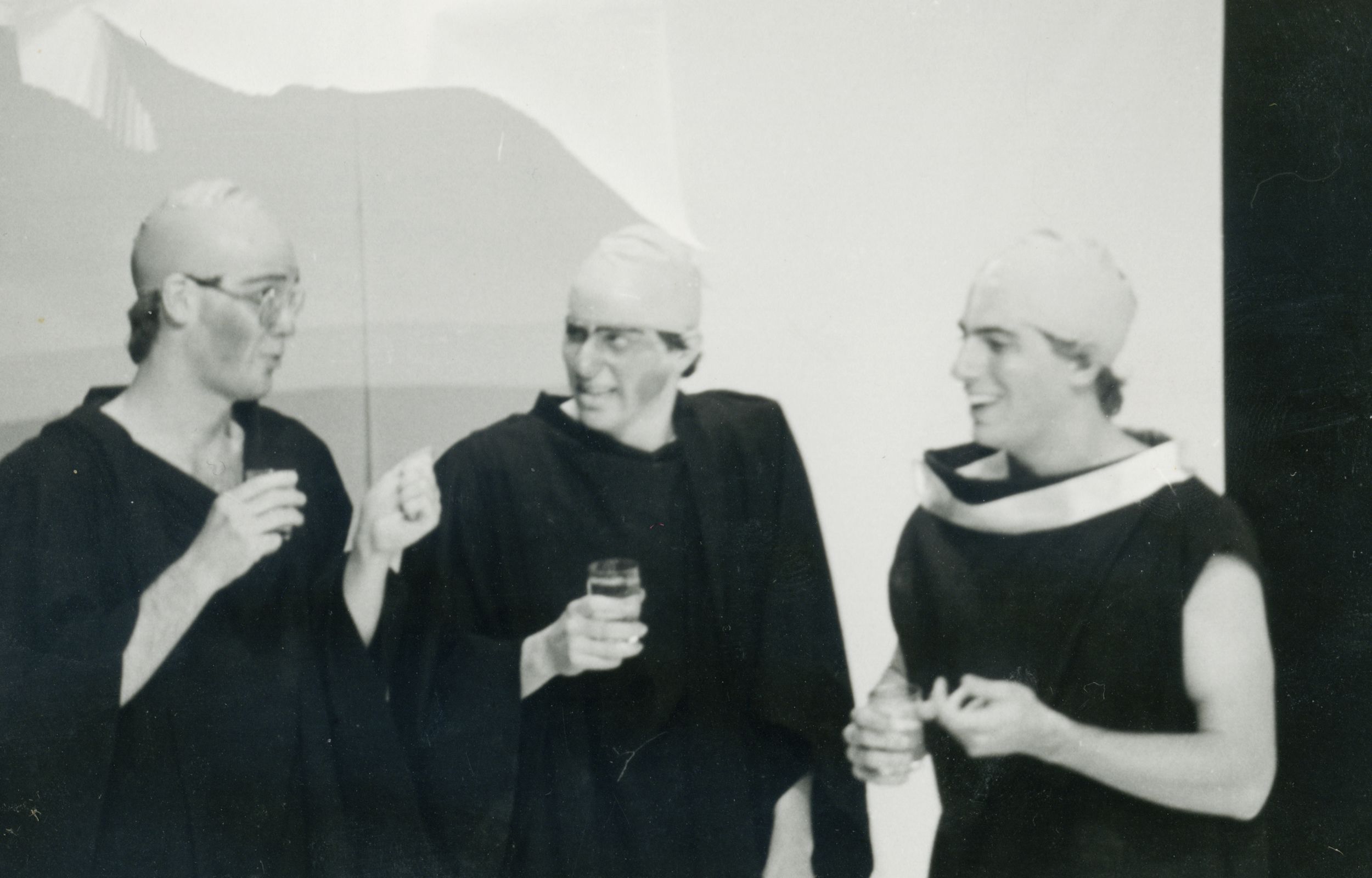
Swimming caps make for a good bald-cap in the 1981 college performance of Bertolt Brecht's Mr Puntilla. Trinity College Archives, MM 007999.
Swimming caps make for a good bald-cap in the 1981 college performance of Bertolt Brecht's Mr Puntilla. Trinity College Archives, MM 007999.
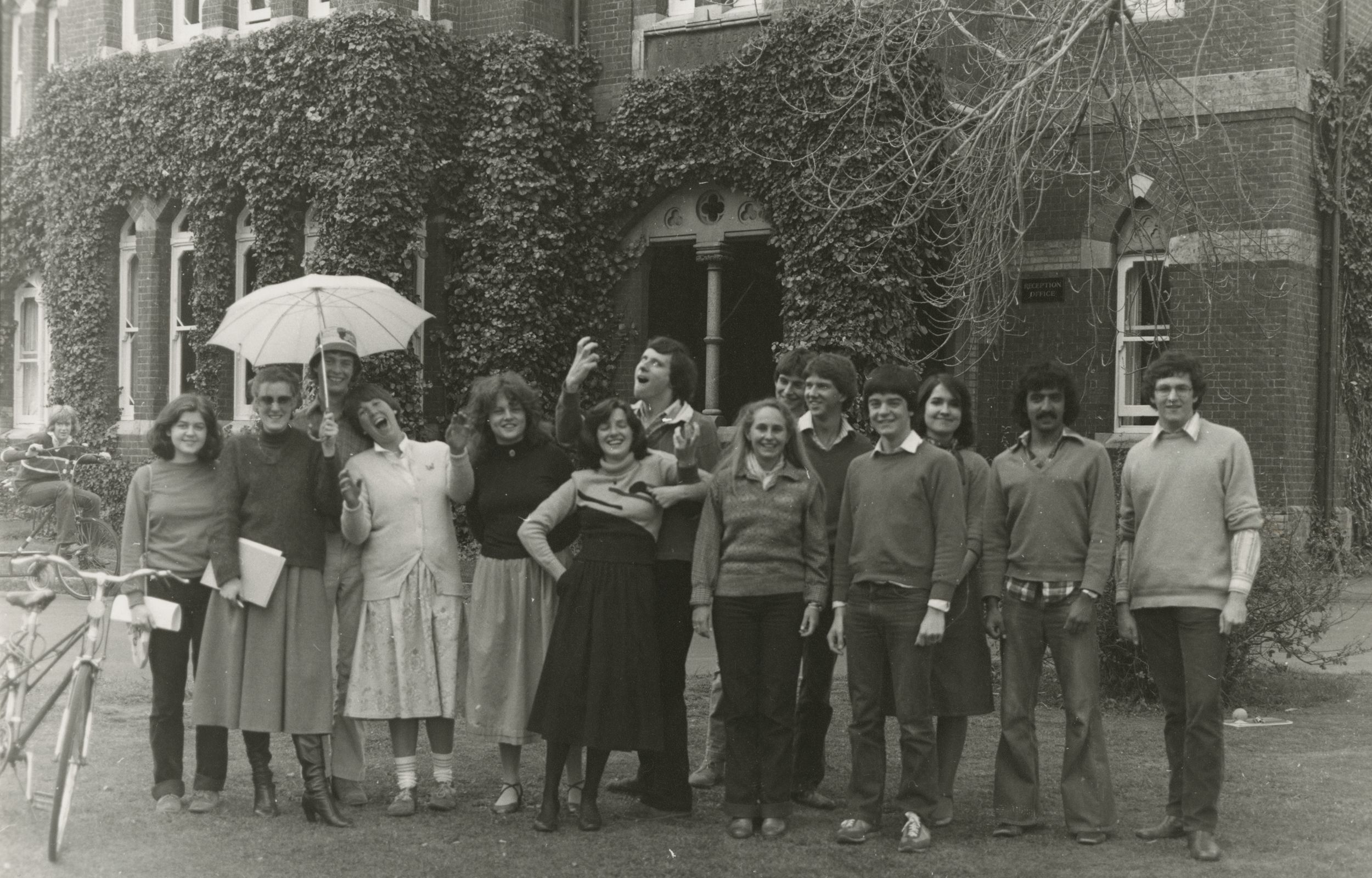
Performers and crew of the 1980 production of Oh, what a lovely war! pose for a cast photo. Trinity College Archives, MM 000613
Performers and crew of the 1980 production of Oh, what a lovely war! pose for a cast photo. Trinity College Archives, MM 000613
Let the music play
Musical theatre was here to stay. A string of classics followed: Grease (1986), Chicago (1987), West Side Story (1990), Sweeney Todd (1995), Little Shop of Horrors (1998 and 2007), The Producers (2008, and again in 2018).
One hundred and forty-one years after Trinity’s inaugural dramatic performance, audiences were this year left astounded by the talent on display in student Jem Herbert’s (TC 2020) production based on Paul Gallico’s 1966 novel, The Man Who Was Magic.

Jem Herbert (TC 2020), who wrote an astounding production, Mageia: A Musical Fable.
Jem Herbert (TC 2020), who wrote an astounding production, Mageia: A Musical Fable.
Two years in the making, Mageia: A Musical Fable was a marvel that encapsulated the fullness of dramatic creativity at Trinity. As lockdowns eased and audiences could once again return to campus, Jem reflectively points to the sage observation of the late, great American composer and lyricist Stephen Sondheim:
‘Musicals are plays, but the last collaborator is your audience, so you’ve got to wait ’til the last collaborator is in before you can complete the collaboration.’
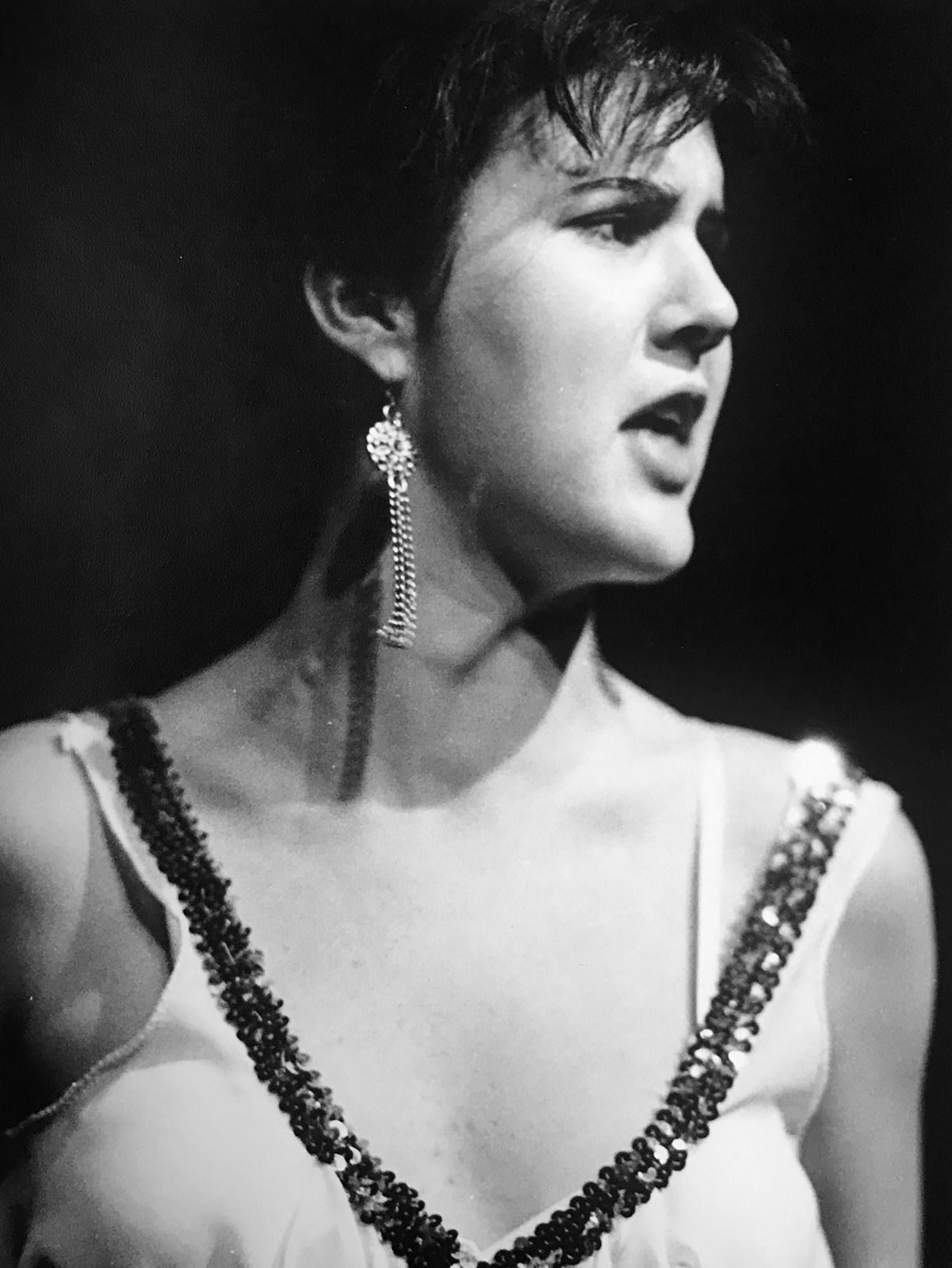
Jane Exell (TC 1989) in the lead role of Cleopatra, in the college production of Antony and Cleopatra, 1991. Trinity College Archives, MM 007512
Jane Exell (TC 1989) in the lead role of Cleopatra, in the college production of Antony and Cleopatra, 1991. Trinity College Archives, MM 007512
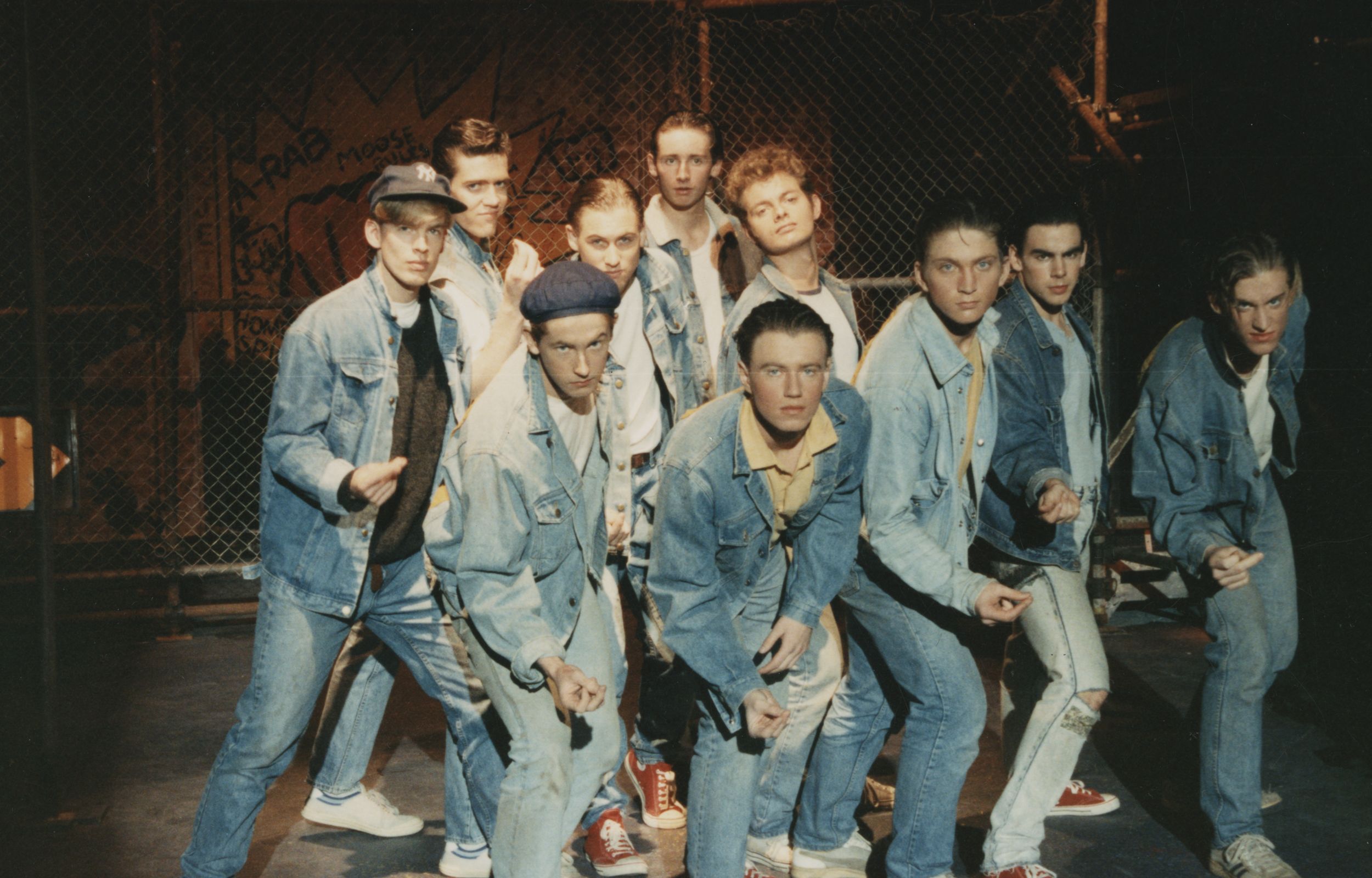
MM 001279
MM 001279

And Then There Were None, performed at the Guild Theatre, University of Melbourne, September 2012. Trinity College Archives, MM 007262
And Then There Were None, performed at the Guild Theatre, University of Melbourne, September 2012. Trinity College Archives, MM 007262
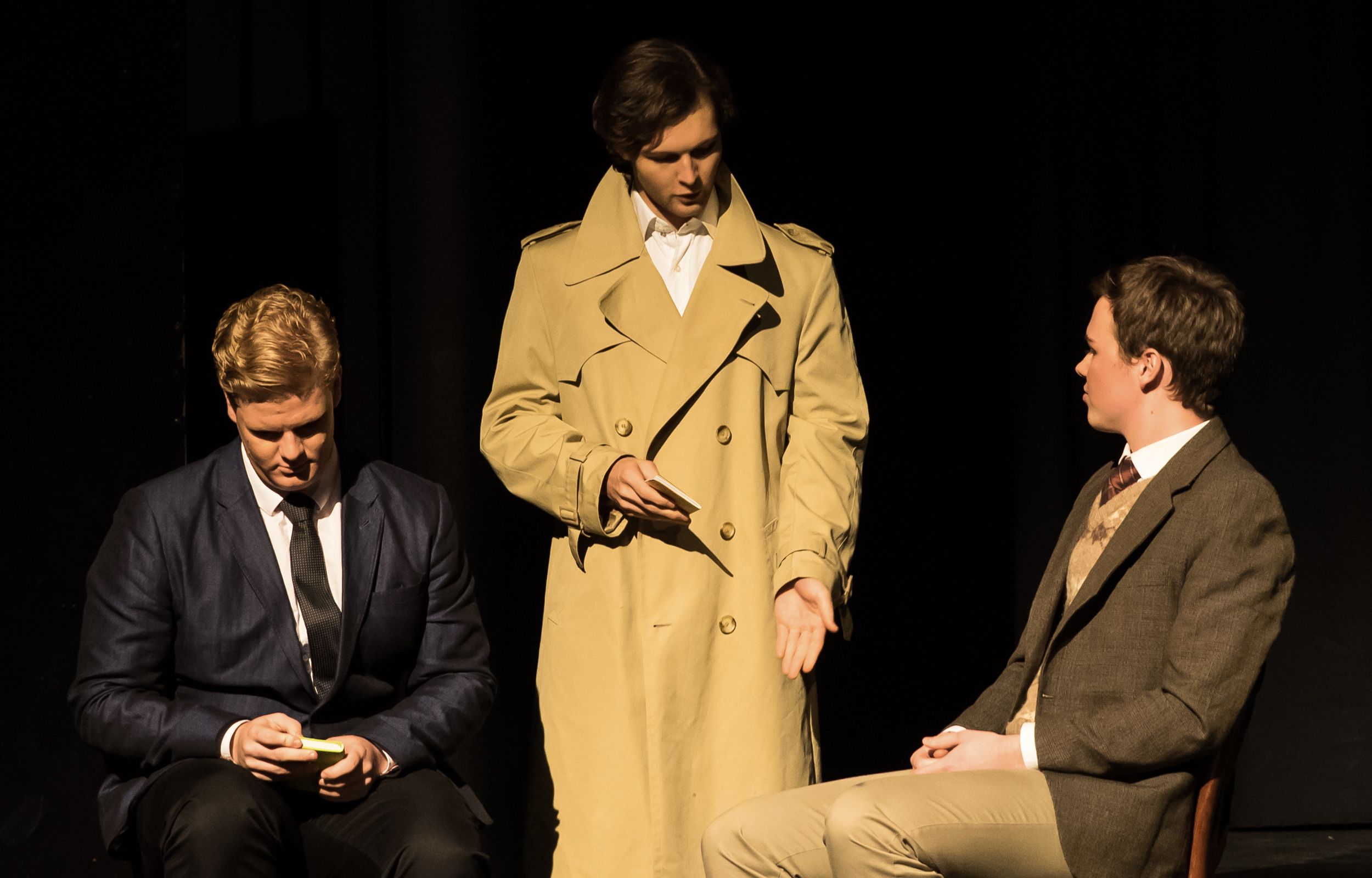
Cast members on stage during the performance of the college musical Cabaret, Union Theatre, University of Melbourne, 2015. Trinity College Archives, MM 007070
Cast members on stage during the performance of the college musical Cabaret, Union Theatre, University of Melbourne, 2015. Trinity College Archives, MM 007070

Cast members of the 1999 college performance West Side Story. Trinity College Archives, MM 001512
Cast members of the 1999 college performance West Side Story. Trinity College Archives, MM 001512
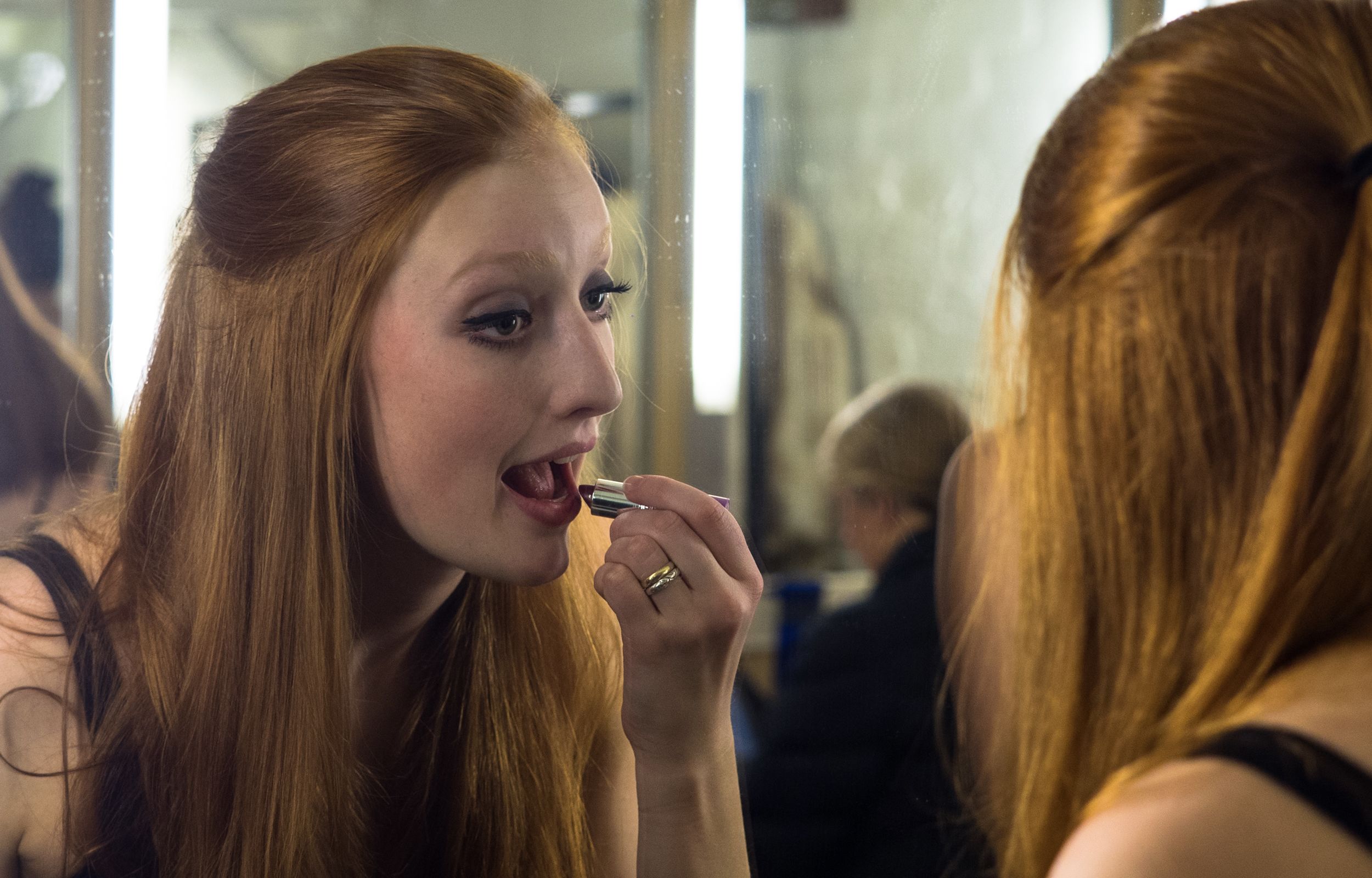
Georgie Davie (TC 2013) getting ready for the 2015 performance of Cabaret, Union Theatre, University of Melbourne. Trinity College Archives, MM 007068
Georgie Davie (TC 2013) getting ready for the 2015 performance of Cabaret, Union Theatre, University of Melbourne. Trinity College Archives, MM 007068

After a break during the COVID years, Trinity's musicals recommence with an incredible performance of Mageira in 2022, written by student Jem Herbert (TC 2020).
After a break during the COVID years, Trinity's musicals recommence with an incredible performance of Mageira in 2022, written by student Jem Herbert (TC 2020).
Trinity v Ormond
As the first two colleges of the University of Melbourne, Trinity and Ormond have had their fair share of rivalry from the get-go, especially on the sporting field.

CONTENTS
TIMELINE
FROM THEN TO NOW
This is how Trinity College's story has unfolded.
COLLEGE NEWS
NEWS
A snapshot of 2022....and what a special year it was.
OBITS
We are saddened to acknowledge the passing of Trinity alumni and friends during 2022.
ART AND CULTURE
TRINITY UP IN LIGHTS
Trinitarians have been taking to the stage since the late 19th century. We look at the trajectory of Trinity's performing arts scene.
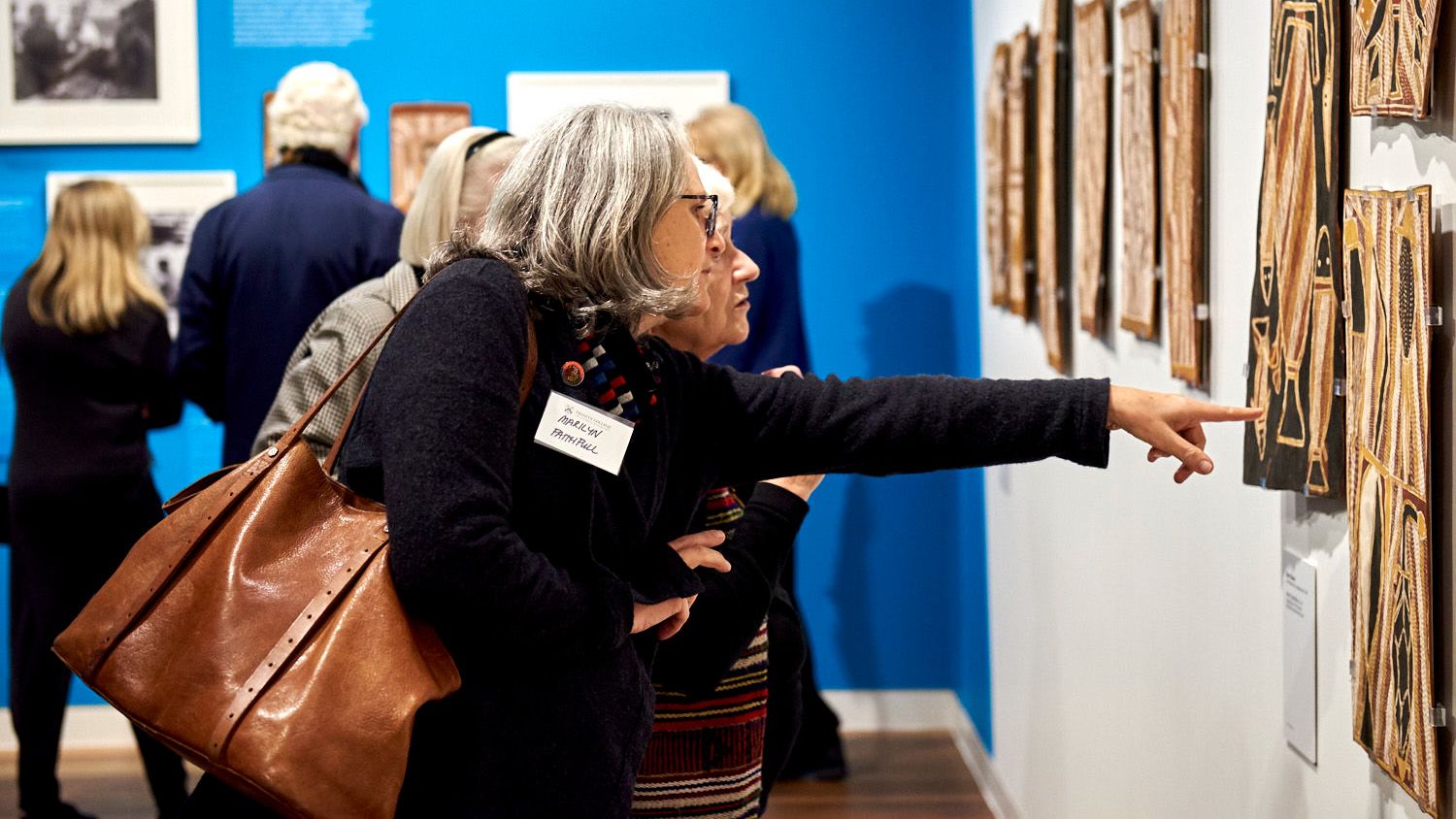
We explore how Trinity came to hold such a diverse and impressive art collection.
DR CALVIN BOWMAN
Meet Calvin, an Oakleaf Awardee.
SPORT

The rivalry between Trinity and Ormond can be traced right back to the beginning.
TIGER WOO!
It doesn't matter if you're a champion athlete or the type who works out rules on the fly, there's a place for everyone on the Trinity team.
GILLON MCLACHLAN
Meet Gillon, an Oakleaf Awardee.
LEADERSHIP
MERCURY RISING
Andrew Prentice shares his journey to become one of the world's leading experts on the formation of the solar system.
ON BEING 'EDUCATION PEOPLE'
Dr Denis White served as Executive Director of Trinity College's Foundation Studies during the program's foundational years and his leadership played an integral role in setting our Pathways School up for success.
TAKING A HOLISTIC VIEW
From its earliest days, Trinity College has aimed to offer students a well-rounded education. Warden and CEO Ken Hinchcliff (TC 1976) explains what this means and the impact it has on our future leaders.
JEROME CUBILLO
Meet Jerome, an Oakleaf Awardee.
FAITH
EXPRESSING ANGLICAN IDENTITY
The Archbishop of Melbourne, the Most Revd Dr Philip Freier, reflects on the history of the Trinity College Theological School.
A MATTER OF FAITH
We look at the influence of chaplaincy and religious worship throughout Trinity's history.
THE REVEREND JENNY INGLIS
Meet Jenny, an Oakleaf Awardee.
FASHION
